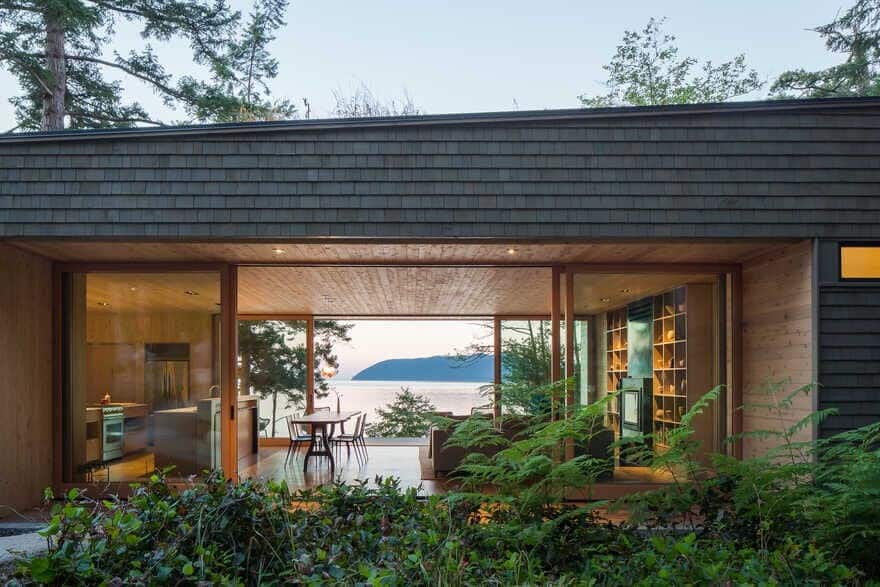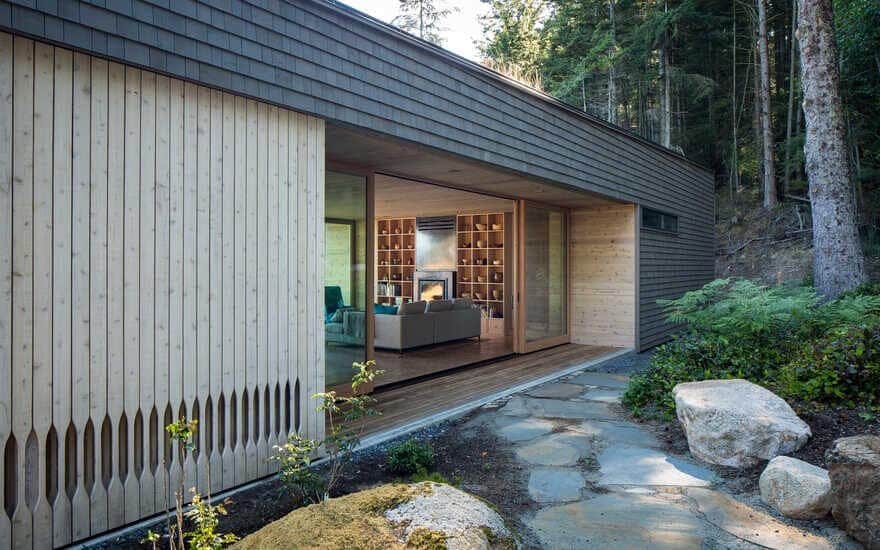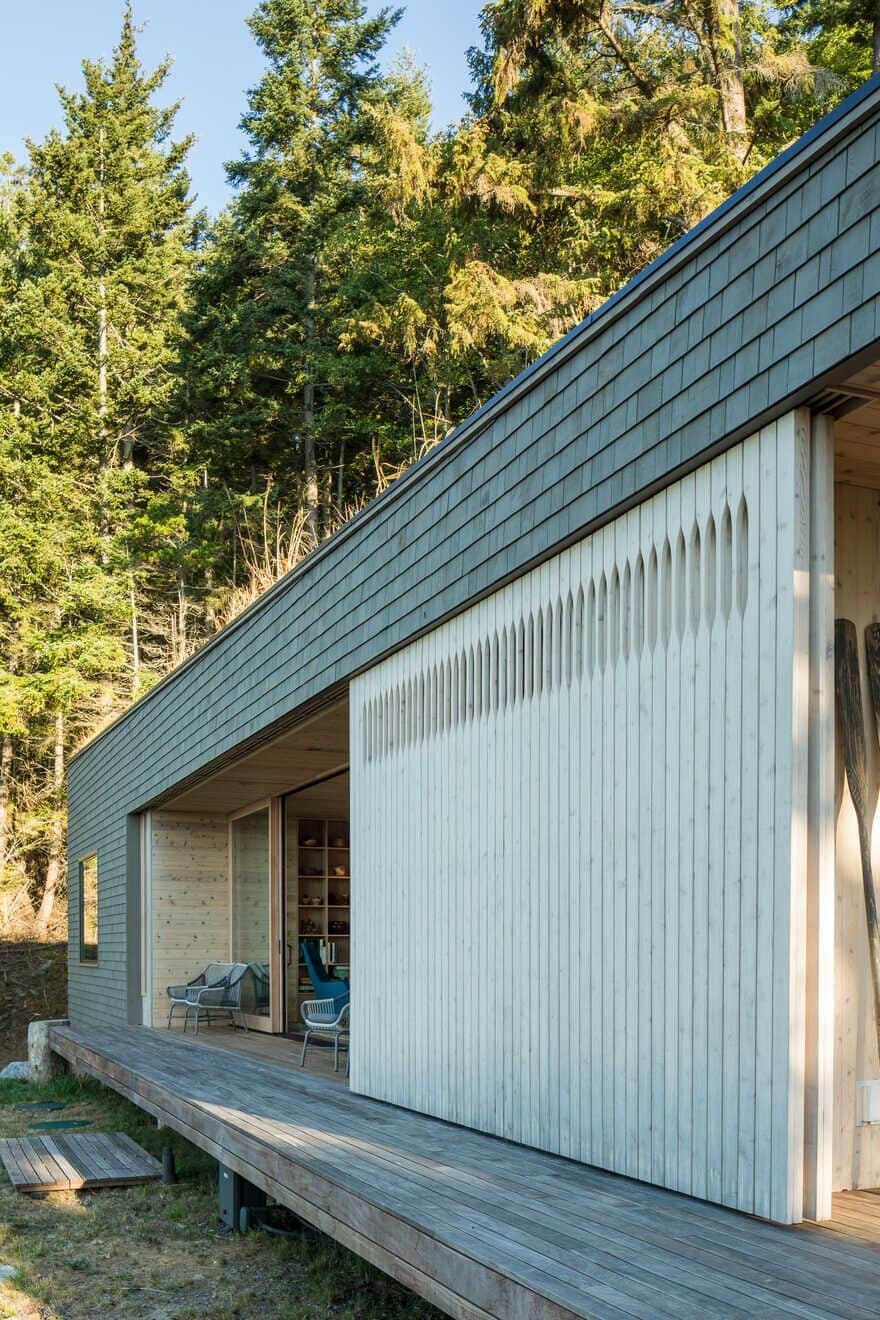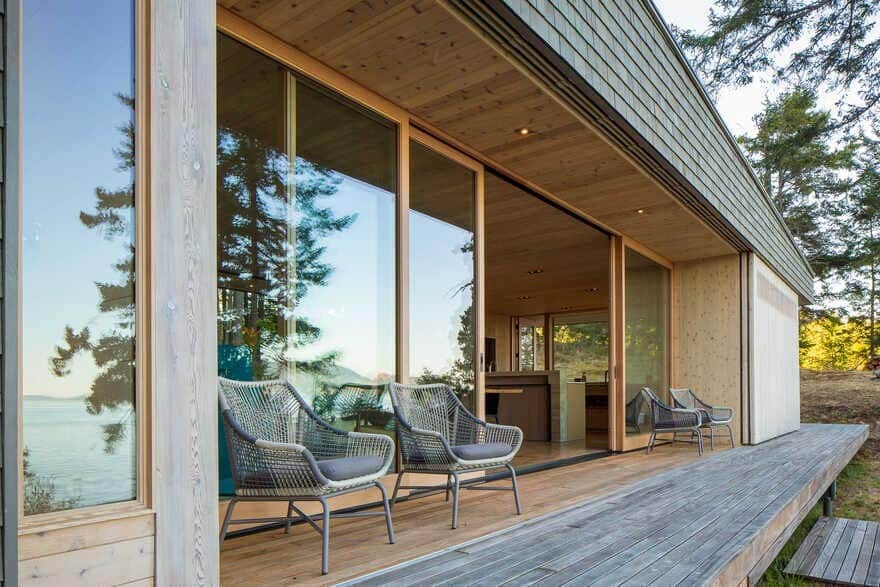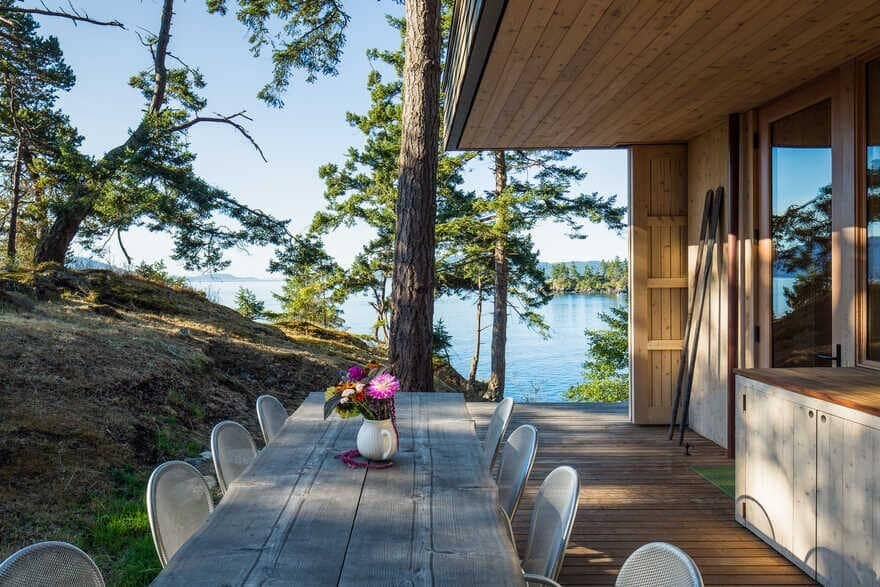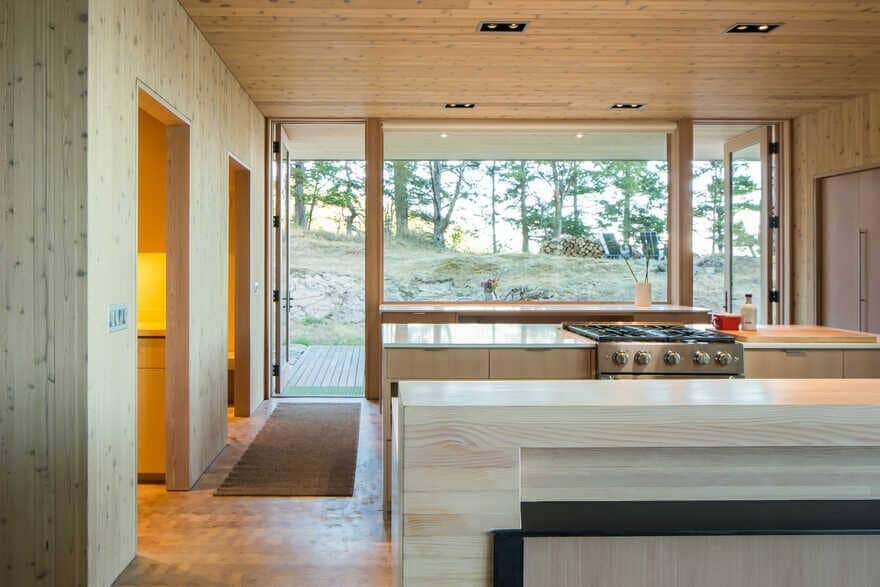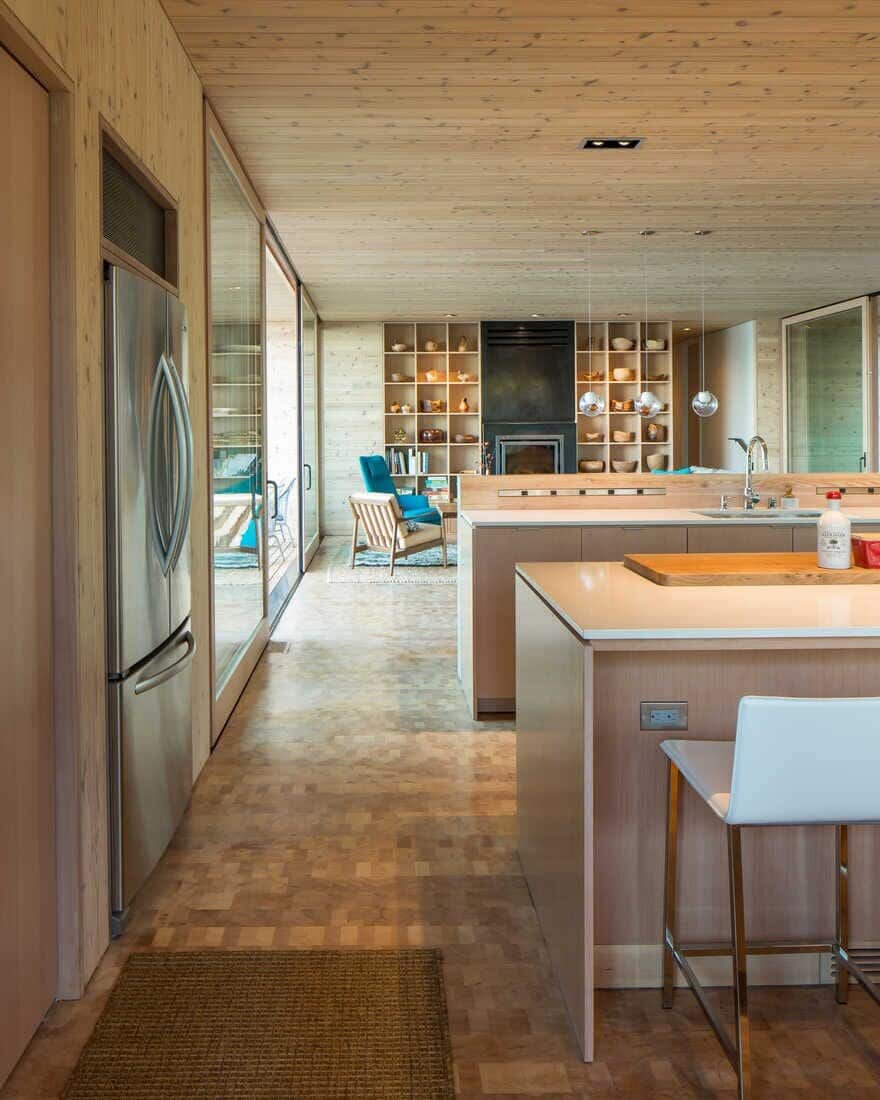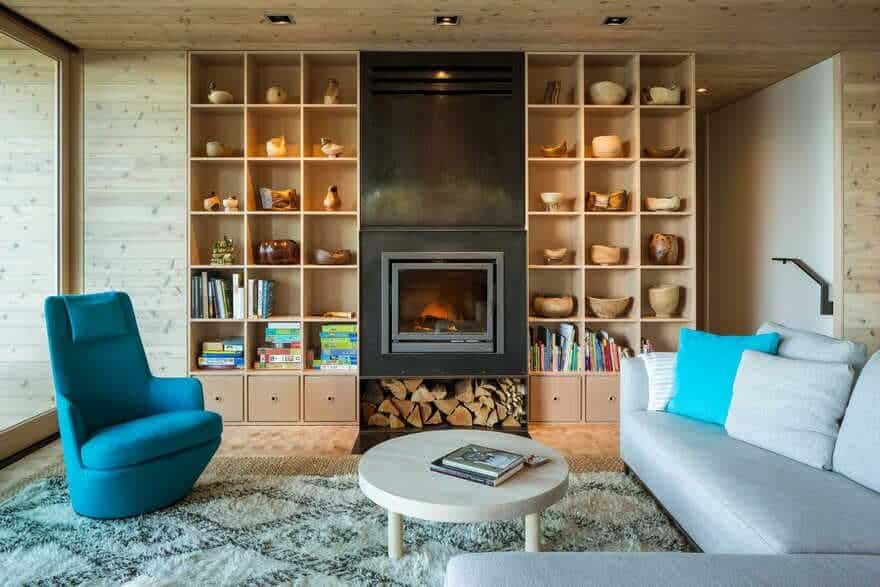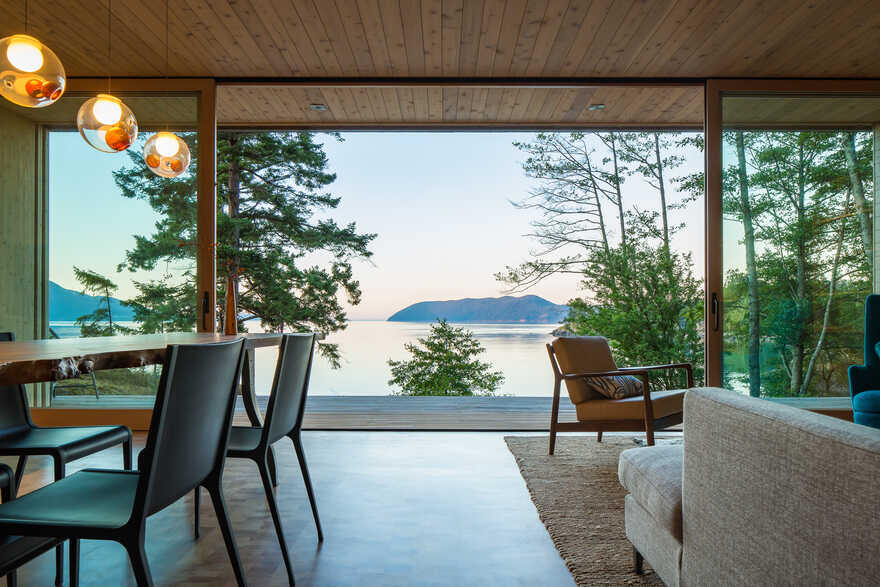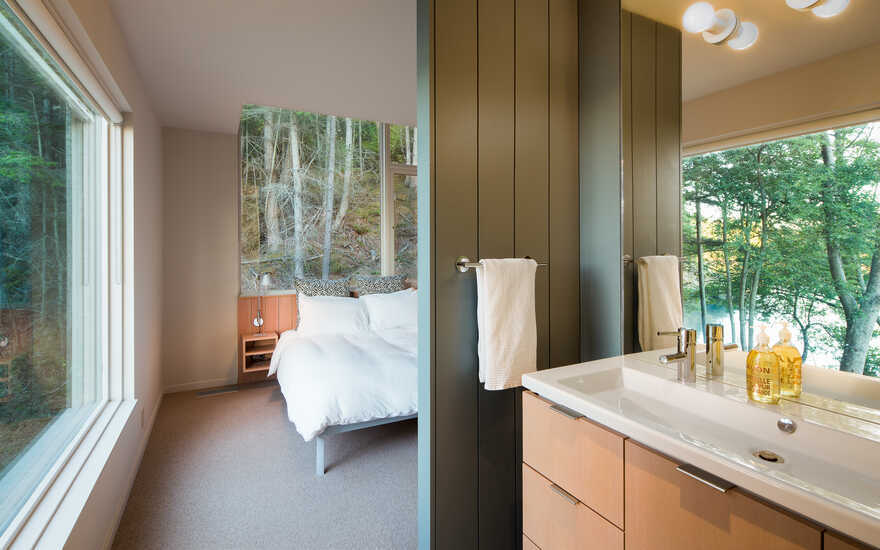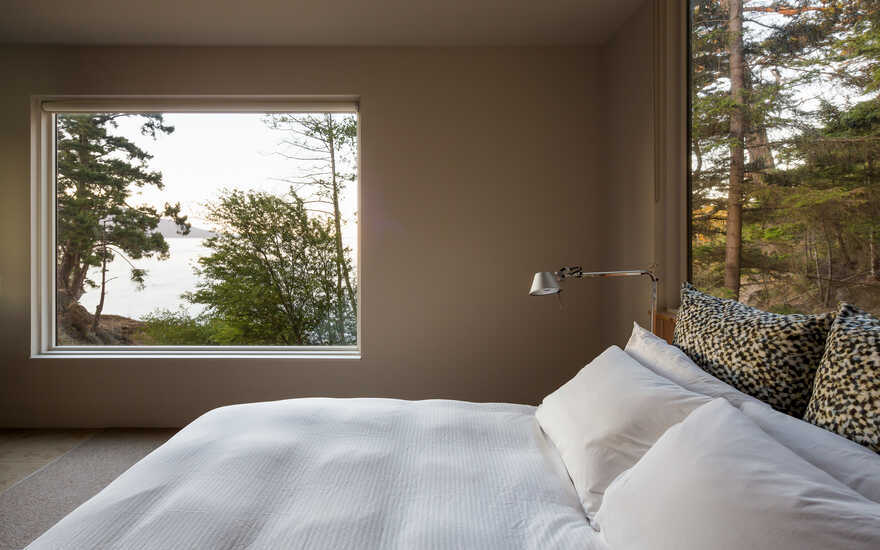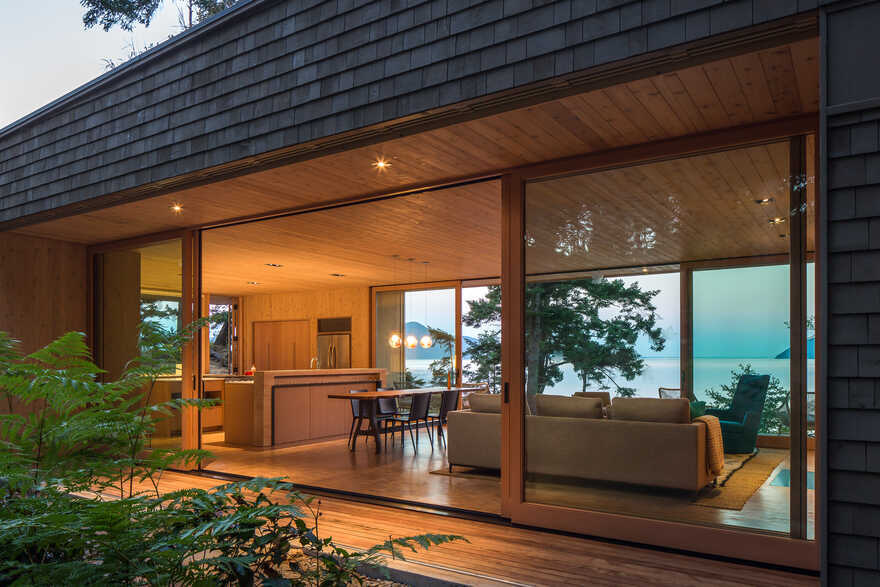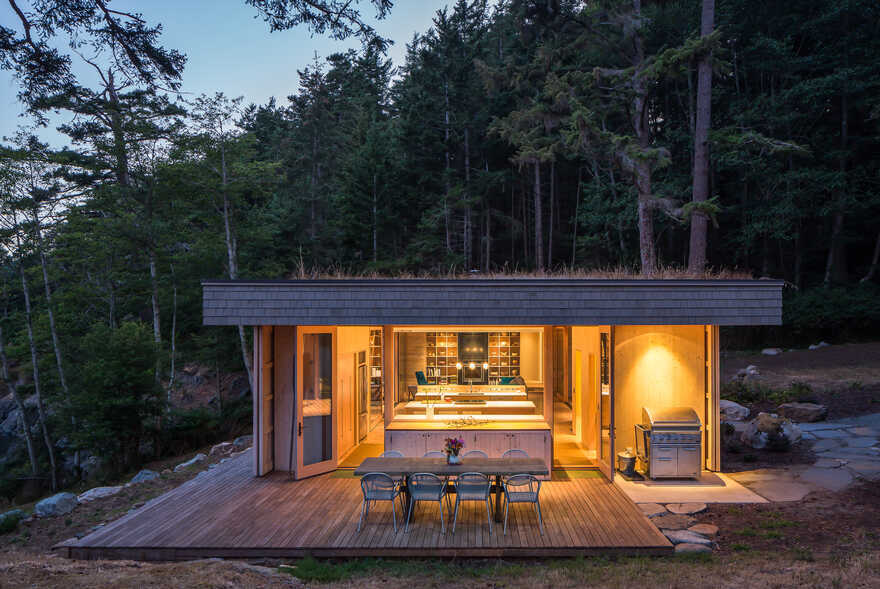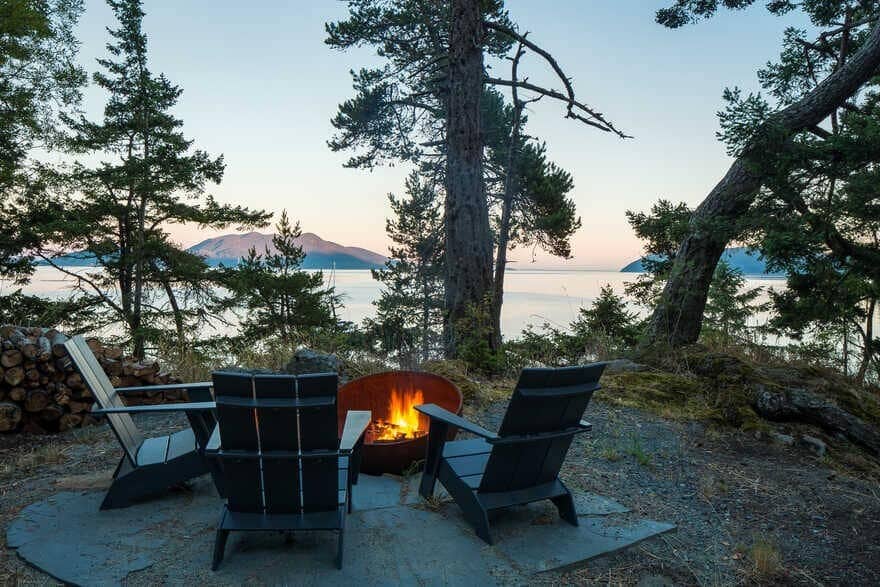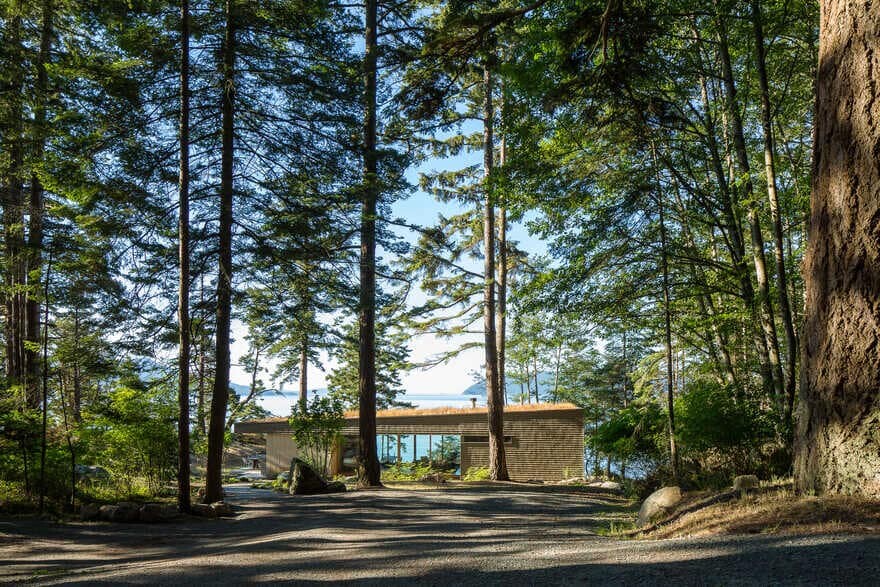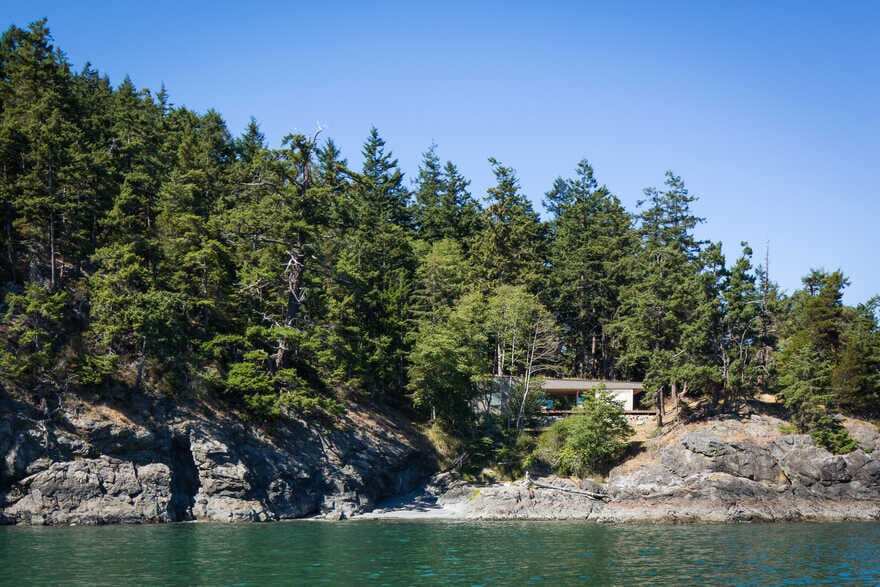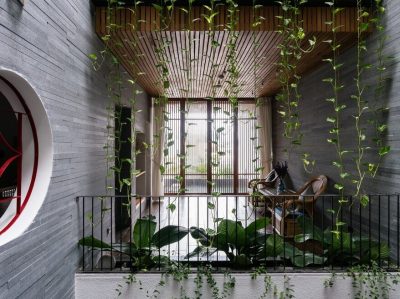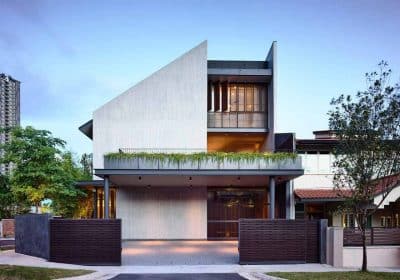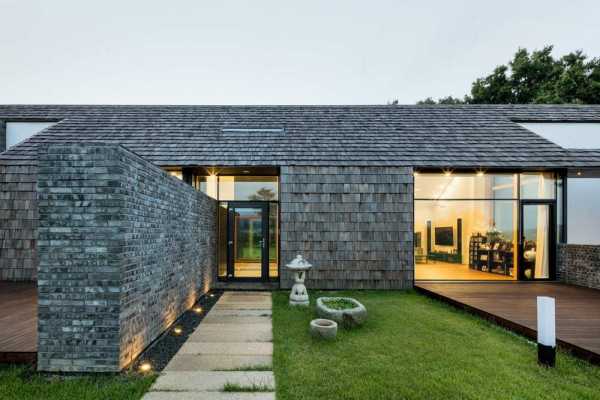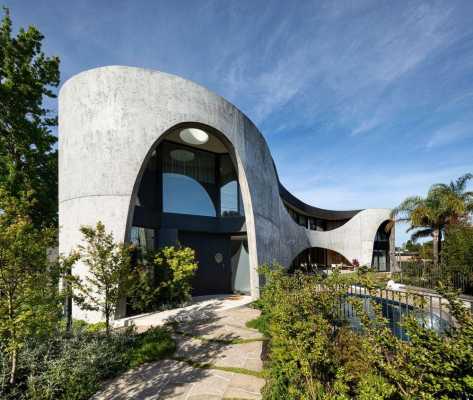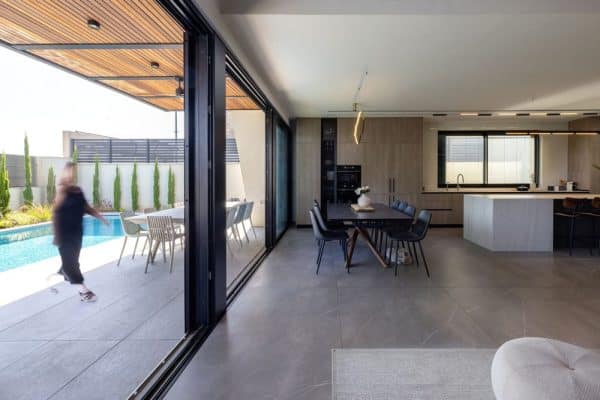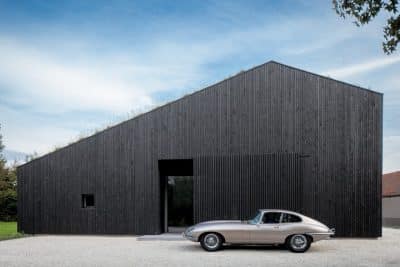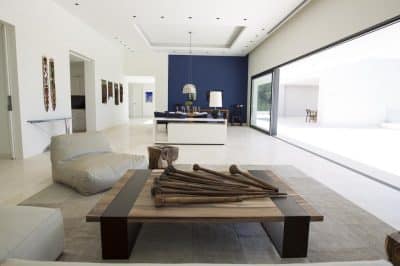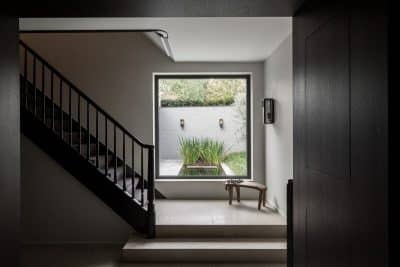Project: Lone Madrone Retreat Home
Architects: Heliotrope Architects
Location: Orcas Island, WA
Interior Furnishings: Ore Studios
Building area: 1,600sf
Completion: 2015
Photography: Sean Airhart
Lone Madrone is a retreat home designed by Heliotrope Architects and located in Orcas Island, WA, USA.
Located on a rocky, wind-swept south facing shoreline; this retreat home nestles into the landscape to harmonize with its surroundings and minimize exposure to weather. The home is a vacation retreat for a family of four, who desired a low-impact home with a strong connection to land and sea. The design solution utilizes a simple ‘wedge’ shape geometry, mimicking the hillside slope beyond, and is tucked into a natural depression in the shoreline in order to diminish its visual impact. Living spaces open up completely on north (garden) and south (water) sides via a custom lift-slide door system. Bedrooms focus primarily on the more private, forested slope to the west and the kitchen opens onto an adjacent a rock promontory to the east. Due to the extreme weather exposure of the site, major openings are paired with rolling wall panels to protect them from punishing winter storms, as well as to provide security when unoccupied. The finish palette consists of local materials including douglas fir (floors, trim), western red cedar (siding, wall and ceiling cladding) and pacific madrone (furniture).
The site is within the San Juan Islands National Monument, with extremely sensitive shorelines and marine environment. A clear understanding of near-shore ecology greatly impacted the design of the home. To avoid habitat loss for near-shore insects, a critical food source for endangered juvenile Chinook salmon, a garden roof seeded with native, drought tolerant vegetation has been utilized. This assembly replaces over 90% of the vegetative footprint lost to construction. With shallow soils, disruption to natural storm-water flow is also a critical issue. Poorly filtered runoff from roofs and other hard surfaces are a major water quality issue in the Islands. Our drainage design captures runoff along the up-slope footing and disperses it in an un-concentrated 1/1 ratio just downslope of the structure, replicating as closely as possible the pre-construction runoff condition. Lastly, the firm worked to satisfy the program requirements as efficiently as possible in order to minimize structural footprint and massing. The result is a 3 bedroom, 2 bath home that feels much larger than its modest 1,600sf size would suggest.

